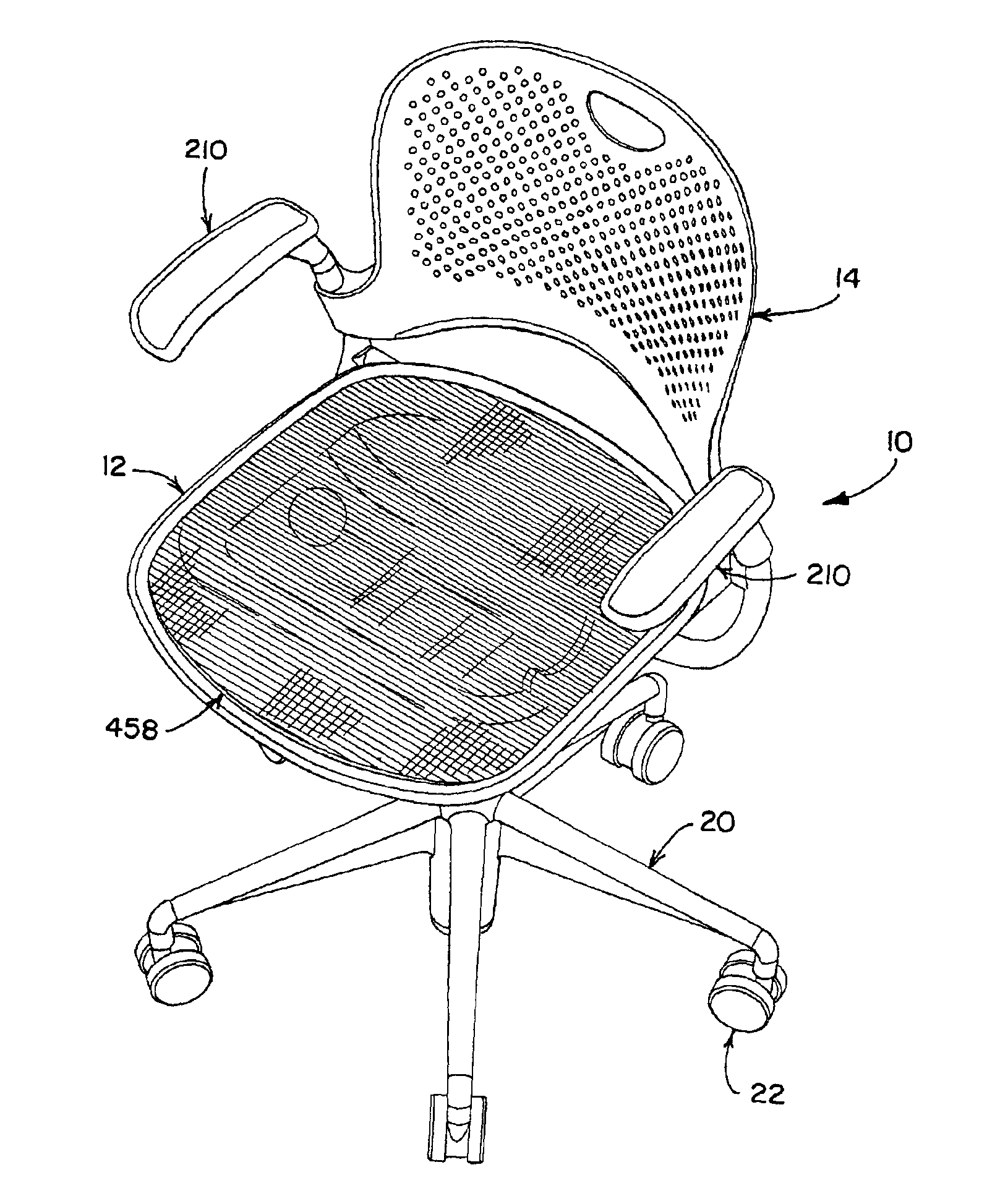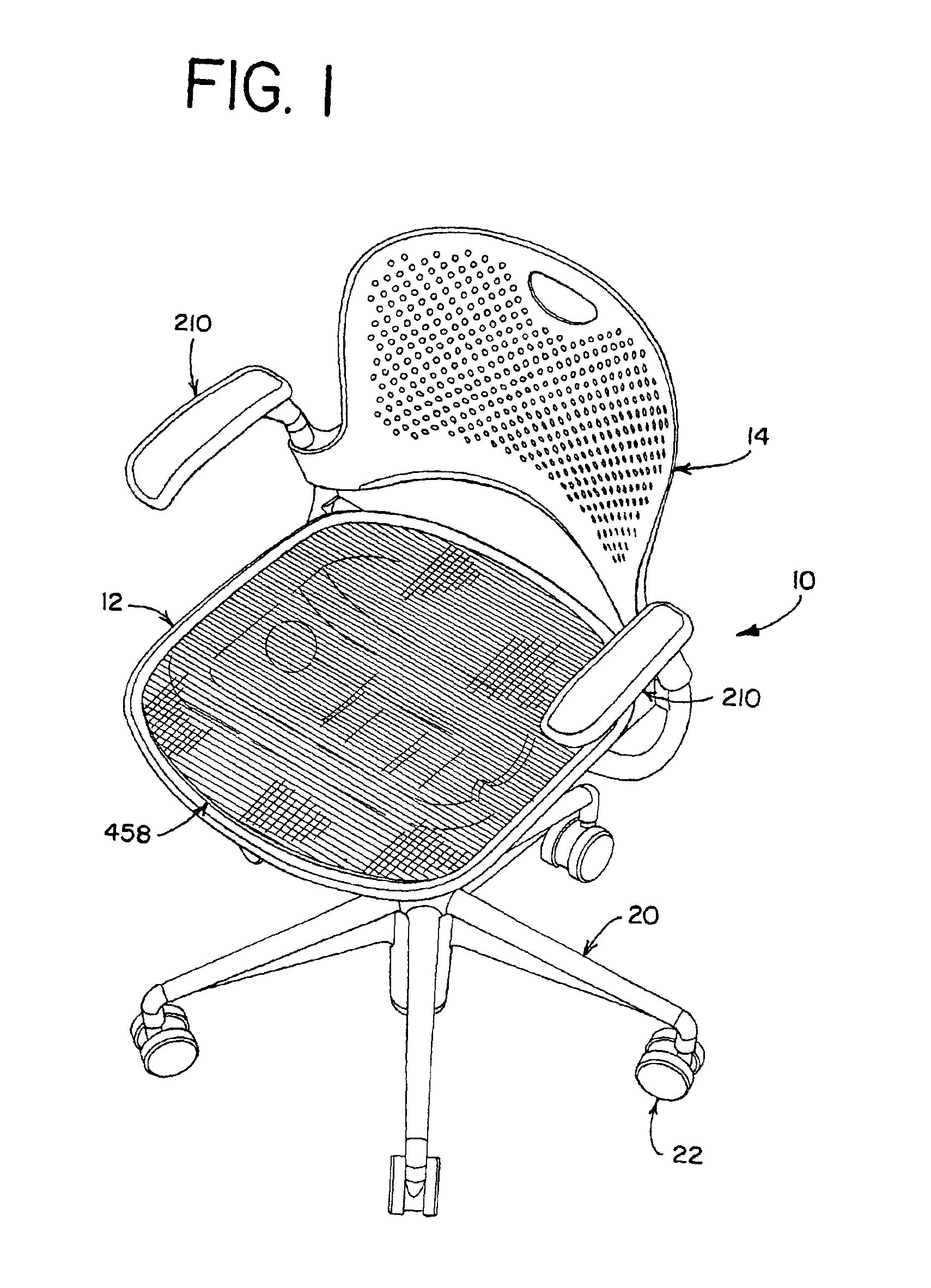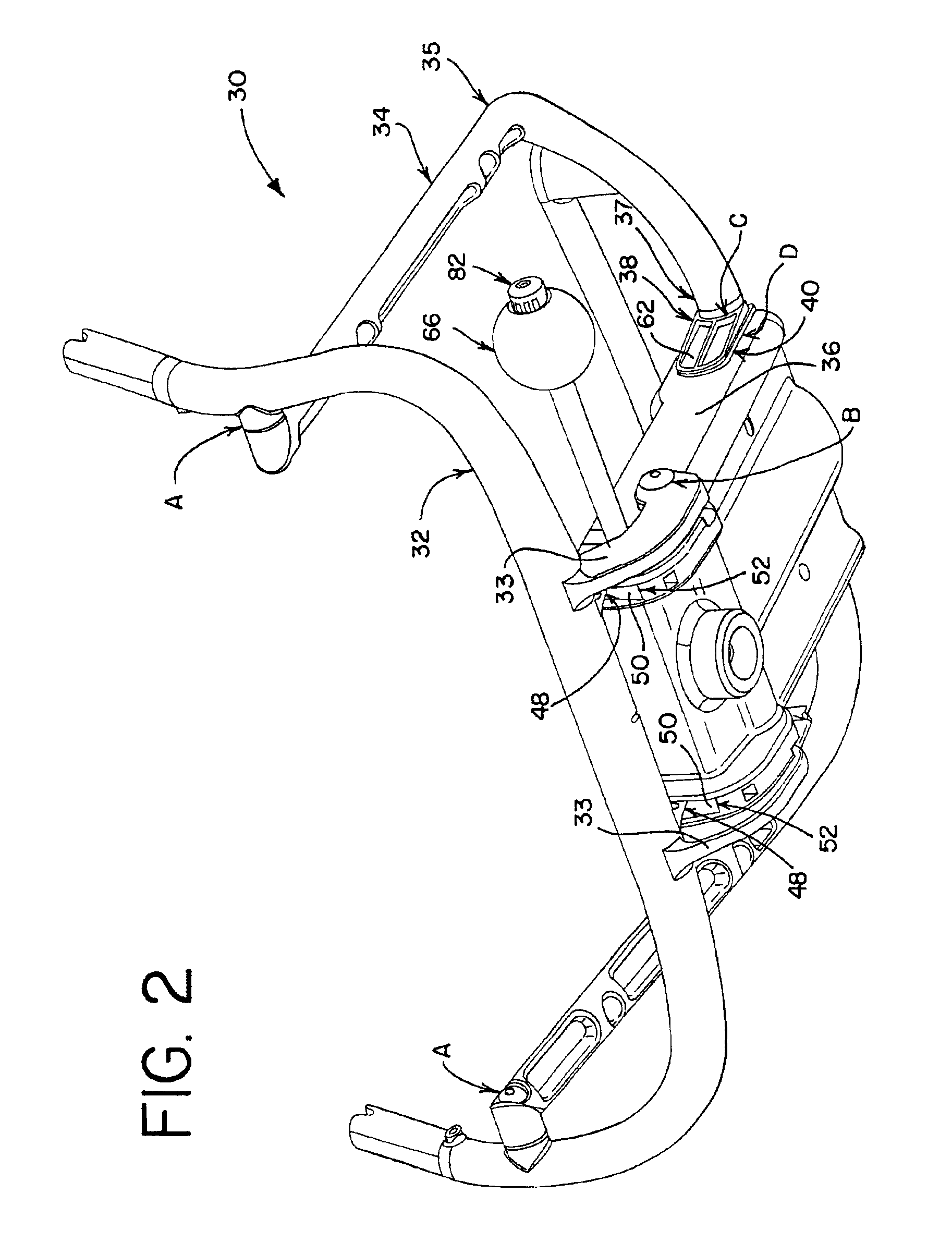Office chair
a technology for office chairs and seats, applied in the field of chairs, can solve the problems of the wide variety of tasks that manufacturers must consider, and the difficulty of manufacturers confronting the various preferences of individual users, and achieve the effects of reducing manufacturing costs, improving aeration, and simplifying the manufacturing of seats
- Summary
- Abstract
- Description
- Claims
- Application Information
AI Technical Summary
Benefits of technology
Problems solved by technology
Method used
Image
Examples
Embodiment Construction
Reclining System
[0073]Turning now to the drawings, and particularly to FIG. 1, there is shown an office chair 10. A user sits in the office chair 10 by resting his upper legs and buttocks on the seat 12 of the chair 10. Although a variety of different seats can be used, a seat 12 like that disclosed below can be used. The user's legs extend down along the front of the chair 10 so that his feet are flat on the floor. In order to rest the user's upper body, the user can lean rearward and relax the back side of his upper body against the back 14 of the chair 10. Arm rests 210 are also provided so that the user can relax his arms on top of the arm rests 210. Although arm rests are not needed, and many styles of arm rests can be used, arm rests 210 like those disclosed below can be used. The seat 12 is supported along its underside by a chair stem assembly 18, and stability is provided by a number of legs 20 that rest on the floor. Casters 22 are provided on the bottom of the legs 20 to ...
PUM
| Property | Measurement | Unit |
|---|---|---|
| width | aaaaa | aaaaa |
| angle | aaaaa | aaaaa |
| circumference | aaaaa | aaaaa |
Abstract
Description
Claims
Application Information
 Login to View More
Login to View More - R&D
- Intellectual Property
- Life Sciences
- Materials
- Tech Scout
- Unparalleled Data Quality
- Higher Quality Content
- 60% Fewer Hallucinations
Browse by: Latest US Patents, China's latest patents, Technical Efficacy Thesaurus, Application Domain, Technology Topic, Popular Technical Reports.
© 2025 PatSnap. All rights reserved.Legal|Privacy policy|Modern Slavery Act Transparency Statement|Sitemap|About US| Contact US: help@patsnap.com



